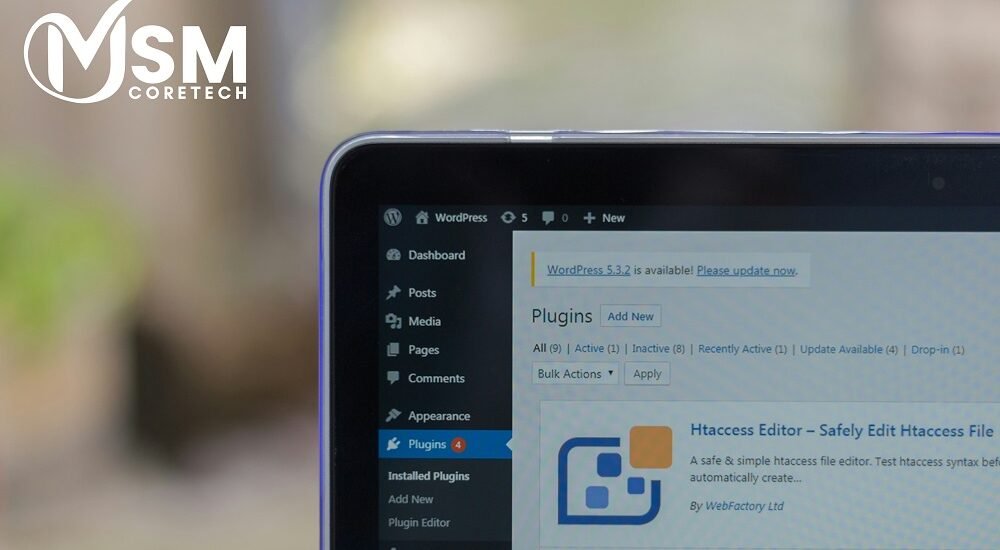Web Development Services in Jaipur are increasingly becoming synonymous with secure, scalable, and compliant web solutions. As digital threats grow in sophistication, development companies must now bake security protocols into every stage of the web development lifecycle—right from planning to deployment.
Gone are the days when basic HTTPS and form validation were enough. Today’s applications require robust frameworks for authentication, authorization, data encryption, threat modeling, vulnerability scanning, and more. Leading firms in Jaipur are proactively adopting modern security practices to ensure websites not only function well but also protect users, data, and systems from evolving cyber threats.
In this post, we explore how Jaipur-based web development service providers implement enterprise-grade security in modern websites and web apps.
🔐 Why Security Is a Top Priority
In a world where data is the new oil, even a minor breach can lead to severe consequences—legal, financial, and reputational.
Key Risks Mitigated by Strong Security:
- Data breaches (PII, payment data, etc.)
- Ransomware and DDoS attacks
- Credential stuffing and session hijacking
- SQL injection, XSS, CSRF, SSRF
- Third-party dependency exploits
Jaipur-based developers are aligning security practices with frameworks like OWASP Top 10, GDPR, and ISO 27001 standards to mitigate such risks.
🧱 Security Architecture in Web Development
Leading web development services in Jaipur follow layered security architecture, also known as Defense in Depth:
| Layer | Focus Area |
| Frontend | Input validation, content security policies |
| Backend | Authentication, access control, logic validation |
| API | Rate limiting, token security |
| Database | Encryption, query sanitization |
| Infrastructure | Firewalls, DDoS mitigation, secure hosting |
| DevOps | CI/CD scanning, secrets management |
Each layer acts as a checkpoint to block or isolate security threats.
🛠️ Tools and Frameworks Commonly Used
Jaipur’s top development agencies use a modern toolchain to automate and enforce security:
| Tool/Service | Purpose |
| Helmet.js | Set secure HTTP headers in Node.js |
| bcrypt | Password hashing and salting |
| JWT / OAuth2 | Token-based authentication |
| Snyk / Trivy | Scan open-source dependencies |
| OWASP ZAP | Dynamic application security testing (DAST) |
| GitHub Secrets | Protect credentials in CI/CD pipelines |
| WAF (Cloudflare/AWS) | Web Application Firewall |
All code and environments go through both static and dynamic security scans before deployment.
🔒 Key Security Practices in Development Workflow
Web development teams in Jaipur implement security from the ground up:
1. Secure Coding Standards
- Follow language-specific secure coding guidelines
- Avoid use of eval, inline scripts, and direct DOM manipulation
- Prevent SQL injection via ORM frameworks (e.g., Sequelize, Prisma)
2. Authentication & Authorization
- Use industry standards like OAuth2, OpenID Connect
- Implement RBAC (Role-Based Access Control)
- Enforce multi-factor authentication (MFA) for admins
3. HTTPS Everywhere
- All APIs and site content delivered over TLS
- HSTS headers enforced to prevent downgrade attacks
4. Input Validation & Sanitization
- Sanitize all incoming data
- Use validation libraries (e.g., Joi, Yup, Zod)
- Whitelisting over blacklisting wherever possible
🧪 Secure CI/CD Pipeline Integration
Modern CI/CD pipelines include automated security checks at every stage:
| Stage | Security Step |
| Pre-Build | Linting and static code analysis (SonarQube) |
| Build | Dependency checks (npm audit, Snyk) |
| Post-Build | Vulnerability scans using OWASP ZAP |
| Deployment | Enforced secrets masking, role-controlled environments |
| Monitoring | Log analysis and real-time threat alerts |
These pipelines are configured to fail builds if vulnerabilities are found, preventing them from reaching production.
🧬 Database and Data Security
Security isn’t just about frontend protection—it’s also about data-at-rest and data-in-transit security.
Best Practices:
- Encrypt all sensitive data (AES-256)
- Secure connections to databases using SSL
- Avoid exposing direct DB access to public internet
- Log and monitor all access to database services
- Use read-only roles for API-layer access
Some teams also implement data masking or tokenization for applications handling sensitive personal or financial data.
📦 Security for APIs and Microservices
APIs are often the most vulnerable layer in modern web stacks. Jaipur-based developers secure APIs using:
- Rate limiting and throttling (e.g., Nginx, API Gateway)
- JWT tokens with refresh strategy
- CORS policy enforcement
- IP whitelisting and API key rotation
- Schema validation for REST and GraphQL APIs
🧠 Real-World Use Case: Securing an Online Booking Platform
A mid-sized travel company hired a web development service provider in Jaipur to overhaul their platform with security as a priority.
Threats Identified:
- Injection attacks on user forms
- Unsecured admin dashboard
- Public access to backend APIs
- Weak password storage
Solutions:
- Implemented React with strict CSP headers
- Used bcrypt for secure password handling
- JWT authentication with automatic token refresh
- Integrated Cloudflare WAF and rate limiting
- Continuous vulnerability scans via Snyk + OWASP ZAP
Results:
- Achieved PCI-DSS compliance
- 0 downtime security incidents over 12 months
- Boosted user trust through secure design
📊 Monitoring and Response
Security doesn’t stop at deployment. Jaipur-based companies implement real-time monitoring and incident response workflows:
| Tool | Use |
| Sentry | Error monitoring |
| ELK Stack | Centralized logging |
| Datadog | Server and app performance tracking |
| PagerDuty | Alerting and response |
| Fail2Ban | Brute-force protection |
Teams run periodic pen tests and update dependencies regularly to prevent zero-day vulnerabilities.
Final Thoughts
Web Development Services in Jaipur aren’t just about building websites—they’re about building secure digital experiences. By implementing modern security protocols across every layer of the stack, these companies protect their clients, users, and infrastructure from an increasingly dangerous digital landscape.
Whether you’re launching a startup, an eCommerce portal, or an enterprise SaaS platform, working with a Jaipur-based team that follows strict security practices is a smart investment in your future.
🚀 Want a Secure Website from Day One?
At MSM Coretech Innovations, we architect secure, compliant, and resilient web platforms—right from code to cloud. Our DevSecOps model integrates protection at every stage of development.
👉 Book a free website security consultation
📞 Let’s secure your digital future—together.






